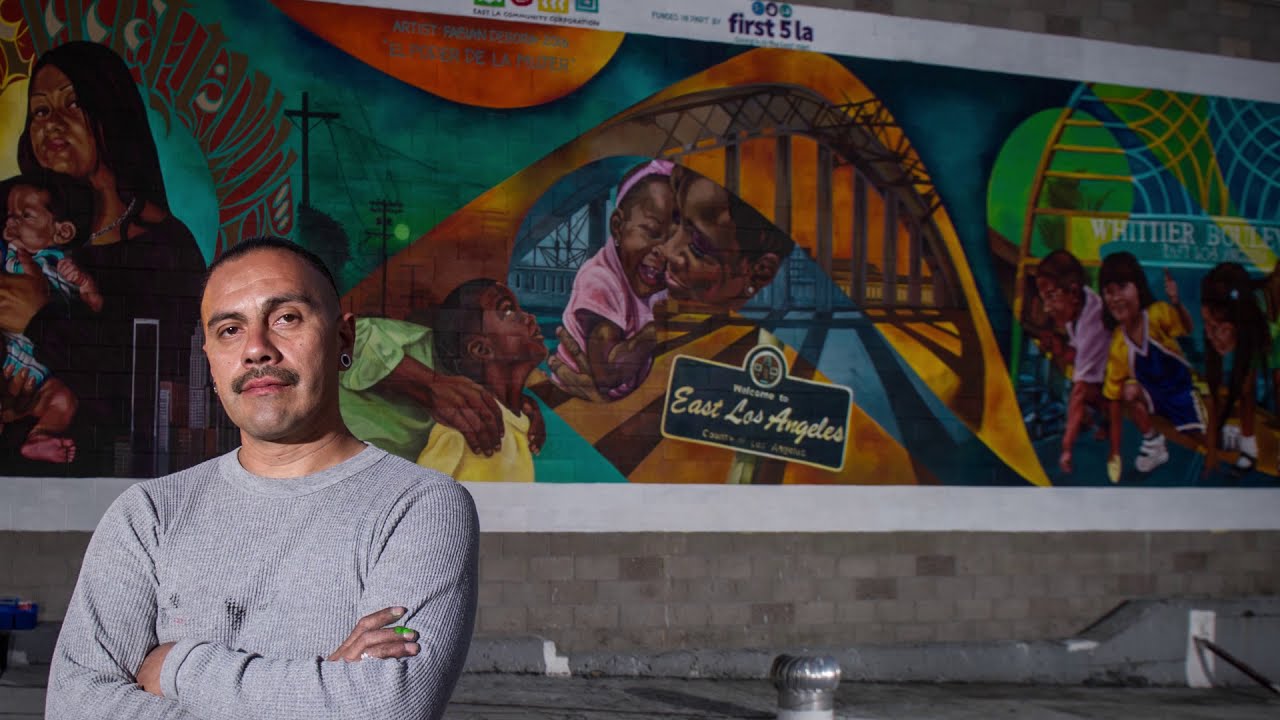Chicana Feminism within Chicano Movement
Summary
TLDRThe Chicana feminist movement, emerging within the Chicano movement of the 1960s and 1970s, sought to address the exclusion of women in a predominantly male-led movement. Focused on challenging stereotypes, fighting for better employment opportunities, and advocating for women's rights, key figures like Yolanda Navas and Francisa Flores played vital roles. Publications like *Regeneration* and *AO Del Nor* were crucial in amplifying Chicana voices, discussing issues like abortion, race, gender inequality, and internal misogyny. This overlooked feminist awakening was essential in both challenging societal norms and advocating for Chicana empowerment within their community.
Takeaways
- 😀 Chicana feminists in the 1960s and 1970s faced exclusion within the Chicano movement despite their significant contributions.
- 😀 The Chicana feminist movement aimed to dismantle stereotypes, improve job opportunities, and highlight the struggles of women of color in the U.S.
- 😀 Publications played a crucial role in Chicana feminist activism, with magazines like 'Regeneration' addressing issues such as abortion, employment, and women's rights.
- 😀 'Regeneration' also featured artwork and poetry by Chicanas, showcasing their talents and capabilities.
- 😀 Yolanda Navas' testimony in the 1970s highlighted the challenges faced by Chicanas in finding good jobs, pointing to race, gender, and lack of education as key barriers.
- 😀 Francisa Flores, the editor of 'Regeneration,' was instrumental in shaping the magazine's focus on Chicana life and issues.
- 😀 In 1970, Francisa Flores became the founding president of the Comisión Femenil Mexicana Nacional, advocating for the political and economic empowerment of Chicana women.
- 😀 The Comisión Femenil Mexicana Nacional aimed to end the exclusion of female leadership within the Chicano movement.
- 😀 Another key publication, 'AO Del Nor,' was written by Enriqueta Vasquez and became an important voice in addressing racism and misogyny within the Chicano movement.
- 😀 The feminist movement within the Chicano movement is often overlooked but is crucial to understanding the broader social and political struggles of Chicana women at the time.
Q & A
What was the main focus of the Chicana feminist movement in the 1960s?
-The Chicana feminist movement in the 1960s aimed to address issues such as stereotypes, employment, and the unique struggles of Chicanas as women of color in the United States, often within the broader Chicano movement that was led mostly by men.
What role did publications play in the Chicana feminist movement?
-Publications, particularly magazines like *Regeneración*, were crucial for the Chicana feminist movement. They provided a platform for discussing key issues such as abortion, employment, and the rights of Chicanas, as well as showcasing artwork and poetry by Chicanas to demonstrate their talents and capabilities.
What was the significance of *Regeneración* magazine for the Chicana feminist movement?
-*Regeneración* magazine was highly influential, as it published articles on Chicana life and served as a voice for Chicanas. One of its key contributions was the publication of Yolanda Navas' testimony on Chicana employment needs and recommendations for legislative changes.
Who was Yolanda Navas and what did her work focus on?
-Yolanda Navas was a key figure in the Chicana feminist movement. In her work, she highlighted the challenges faced by Chicanas in securing good jobs, citing factors such as race, gender, and lack of education. Her testimony was published in *Regeneración* and aimed to recommend legislative actions to address these inequalities.
What was the Commission Feminina Mexicana and who founded it?
-The Commission Feminina Mexicana (National Mexican Women's Commission) was founded by Francisca Flores in October 1970. The organization focused on the political and economic empowerment of Hispanic women, particularly Chicanas, and aimed to end the exclusion of female leadership within the Chicano movement.
What did Francisca Flores emphasize about the necessity of the Commission Feminina Mexicana?
-Francisca Flores emphasized that the Commission was necessary to eliminate the exclusion of female leadership within the Chicano movement. She believed that women, particularly Chicanas, needed to have a voice and be empowered in both the political and economic spheres.
What was the role of AO Del Nor in the Chicana feminist movement?
-AO Del Nor, specifically the column written by Enriqueta Vasquez, became an important voice within the Chicana feminist movement. It critiqued Gringo racism and oppression while also challenging the internal racist and misogynistic practices within the Chicano movement itself.
How did the Chicana feminist movement challenge both external and internal societal issues?
-The Chicana feminist movement not only challenged the stereotypes and discrimination imposed by White society but also confronted misogyny and patriarchal practices within Latino communities. This dual challenge made the movement crucial for empowering Chicanas on multiple fronts.
Why is the Chicana feminist movement often overlooked in historical accounts?
-The Chicana feminist movement is often overlooked because it was overshadowed by the broader Chicano movement, which was predominantly male-led. However, the feminist aspect of the movement was crucial for addressing the unique struggles of Chicana women and advocating for their empowerment.
What were some of the main goals of the Chicana feminist movement in the 1970s?
-Some of the main goals included challenging common stereotypes of Chicanas, helping them access better jobs, encouraging them to speak up about their struggles, and promoting leadership roles for women within both the Chicano movement and society at large.
Outlines

هذا القسم متوفر فقط للمشتركين. يرجى الترقية للوصول إلى هذه الميزة.
قم بالترقية الآنMindmap

هذا القسم متوفر فقط للمشتركين. يرجى الترقية للوصول إلى هذه الميزة.
قم بالترقية الآنKeywords

هذا القسم متوفر فقط للمشتركين. يرجى الترقية للوصول إلى هذه الميزة.
قم بالترقية الآنHighlights

هذا القسم متوفر فقط للمشتركين. يرجى الترقية للوصول إلى هذه الميزة.
قم بالترقية الآنTranscripts

هذا القسم متوفر فقط للمشتركين. يرجى الترقية للوصول إلى هذه الميزة.
قم بالترقية الآنتصفح المزيد من مقاطع الفيديو ذات الصلة
5.0 / 5 (0 votes)






